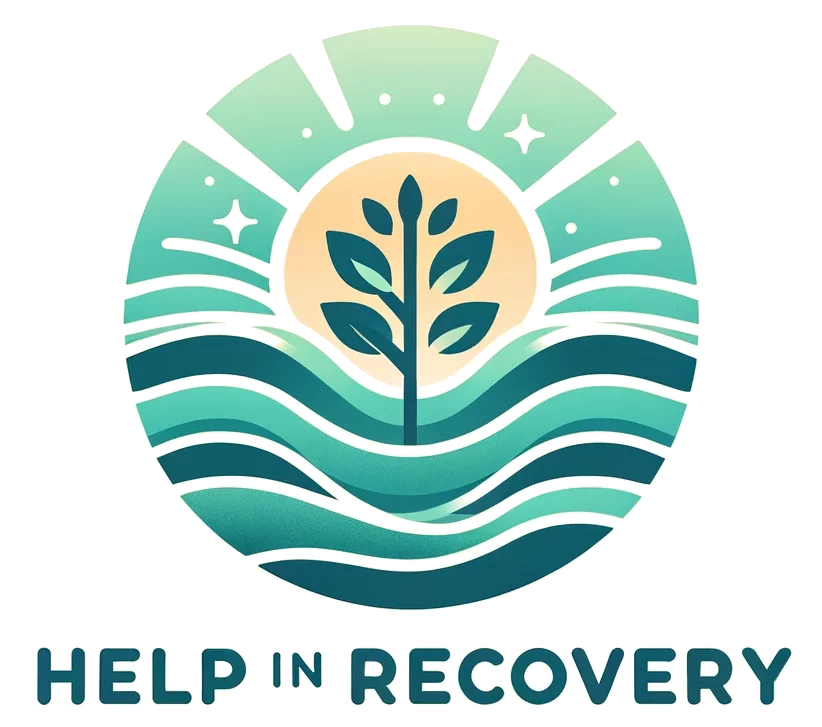Sober Christmas: A Comprehensive Guide to Embracing Sobriety During the Festive Season
Hello everyone! As we step into the season’s twinkling lights and festive spirit, let’s chat about something close to my heart – navigating Christmas while staying sober. This year marks my third sober Christmas, and if I can do it, trust me, so can you! Christmas time, with its merry gatherings and traditions often centred around drinks, can be a bit daunting when you’re committed to sobriety. It brings back a jumble of memories and puts a glass of bubbly in nearly every hand at parties. But here’s a bit of cheer – revelling in the festive season, staying sober, and finding new joys along the way is possible.
In this guide, I’ll take you through the highs and lows of keeping sober during the Christmas cheer. We will talk about real stuff – like how to dodge those drink offers at parties and handle the family dinners without a wine glass. But it’s not all about dodging bullets; we will also explore how to make new traditions that keep your spirits high and your sobriety intact.
Whether this is your first sober Christmas or you’re a bit of a veteran like me, this guide is here to back you up. I’ll share tips, my own stories, and some friendly advice to help you navigate Christmas in a way that honours your commitment to sobriety.
So, pour yourself a nice cup of tea, get comfy, and let’s dive into making your sober Christmas manageable and genuinely delightful.
Key Takeaways
| Key Takeaways | Description |
|---|---|
| Understanding Challenges | Recognise emotional triggers, social pressures, and complex family dynamics that can impact sobriety during Christmas. |
| Navigating Social Gatherings | Choose events wisely, prepare responses for queries about sobriety, and have non-alcoholic drink options ready. |
| Preparing for the Season | Develop a comprehensive sobriety plan, establish boundaries, and build a supportive network. |
| Creating New Traditions | Engage in sober-friendly activities, host gatherings focused on connection, and explore community events. |
| Managing Triggers | Identify potential triggers, employ coping mechanisms, and have an exit strategy for challenging situations. |
| Emphasising Self-Care | Prioritise physical well-being, engage in emotional self-care, and nurture social connections. |
| Finding Support | Leverage support systems, seek professional help if needed, and connect with sober communities. |
| Dealing with Challenges | Utilise strategies to face and manage triggers and challenges effectively. |
| Conclusion and Reflection | Summarise key strategies, reflect on personal growth, and look forward with optimism. |
Strategies for Navigating Social Gatherings
Navigating social gatherings during the festive season, particularly for those maintaining sobriety, requires a blend of foresight, strategy, and resilience. Here are comprehensive plans to help you confidently engage in social events while staying true to your commitment to sobriety.
1. Assessing and Choosing the Right Environment
- Evaluate the Nature of the Event: Prioritise gatherings focusing on conversation and connection over those centred around alcohol.
- Host Your Own Sober Party: If possible, consider hosting a gathering where you can control the environment and ensure it supports your sobriety goals.
2. Handling the Presence of Alcohol
- Always Carry a Non-Alcoholic Beverage: This reduces the chances of someone offering you an alcoholic drink.
- Offer a Variety of Non-Alcoholic Choices: If hosting, ensure appealing alcohol-free options are available for all guests.
3. Communicating Your Sobriety
- Decide on Your Disclosure Level: You may be open about your recovery journey or keep it private. Remember, you owe no one an explanation for your choice.
- Prepare for Potential Questions: Have ready responses for typical inquiries or comments about your non-drinking status.
4. Bringing Along Support
- Invite a Sober Friend: Having someone who shares your sobriety journey can provide emotional and moral support.
- Connect with a Support Person: Ensure you have someone to call or text if you need encouragement or a listening ear during the event.
5. Recognising and Responding to Triggers
- Identify Potential Triggers: Be aware of situations or people that may challenge your sobriety and have a plan to address them.
- Create an Escape Plan: If a situation becomes too challenging, have a strategy for leaving early or taking a break.
6. Prioritising Self-Care
- Listen to Your Instincts: If you feel uncomfortable or overwhelmed, leaving or declining specific invitations is okay.
- Practice Self-Compassion: Acknowledge the strength to navigate these situations and be kind to yourself.
7. Engaging in Alternative Activities
- Plan Sober Activities: Organise or participate in events not involving alcohol, like group sports, cultural outings, or volunteer work.
- Embrace New Traditions: Create new holiday traditions that celebrate your sobriety and bring joy.
By implementing these strategies, you can approach social events during the festive season with greater confidence and control, ensuring that your journey towards sobriety remains steadfast and rewarding.
Preparing for the Festive Season
Preparation is critical to successfully navigating the festive season while maintaining sobriety. A well-thought-out plan can provide a sense of control and confidence. Here’s how to approach the festive season with a solid sobriety plan.
1. Developing a Comprehensive Sobriety Plan
- Anticipate Potential Scenarios: Consider the situations you’ll likely face and how they might impact your sobriety.
- Plan for Triggers: Identify your triggers and develop strategies to handle them, whether emotional, environmental, or social.
- Set Realistic Expectations: Acknowledge that the festive season can be challenging and plan for potential setbacks.
2. Establishing Clear Boundaries
- Define Your Limits: Know your boundaries and be clear about what events or situations you will avoid to maintain sobriety.
- Communicate Boundaries to Others: Inform close friends and family members about your boundaries to ensure they can support you effectively.
3. Building and Utilising a Support System
- Identify Your Support Network: This could include sober friends, family members, a therapist, or a sponsor.
- Stay Connected: Regularly check in with your support network, and don’t hesitate to reach out when you need extra support.
4. Crafting Responses and Exit Strategies
- Prepare Responses: Have a set of responses ready for when people ask about your drinking or sobriety journey.
- Plan an Exit Strategy: If you find yourself in a challenging situation, have a plan for a graceful and quick exit.
5. Engaging in Healthy Practices
- Maintain a Healthy Routine: Prioritise regular exercise, adequate sleep, and a balanced diet to keep your physical health in check.
- Practice Stress-Reduction Techniques: Engage in activities that reduce stress, such as yoga, meditation, or deep breathing exercises.
6. Embracing Alternative Celebrations
- Create New Traditions: Develop new ways to celebrate that align with your sobriety and bring you joy.
- Participate in Sober Community Events: Look for community events or online forums that support sobriety during the festive season.
7. Reflecting and Setting Goals
- Reflect on Your Journey: Take time to acknowledge your progress in sobriety and how far you have come.
- Set Goals for the New Year: Consider what you want to achieve in your sobriety journey in the coming year.
Creating New, Sober-Friendly Traditions
Embracing sobriety during the festive season offers a beautiful opportunity to create new traditions that support your journey. Here are some ideas for fostering joy and celebration in a sober-friendly way.
1. Planning Sober-Friendly Activities
- Outdoor Adventures: Engage in activities like ice skating, winter hiking, or enjoying a festive light display. These activities can be both refreshing and uplifting.
- Arts and Crafts: Organise a day for making homemade decorations or gifts. It’s a creative way to engage with the season and can be a great group activity.
- Cooking and Baking: Host a cooking or baking session with friends or family, focusing on festive recipes. This can be a delightful way to bond and enjoy the holiday spirit.
2. Hosting Sober Gatherings
- Sober Dinner Parties: Host a dinner party with non-alcoholic beverages and a focus on delicious food and great company.
- Game Nights: Organise a game night with board games, card games, or interactive video games that everyone can enjoy.
- Movie Marathons: Choose a selection of holiday films and host a movie marathon night with festive snacks.
3. Engaging in Community and Volunteer Work
- Volunteering: Spend time giving back to the community, such as helping at a local shelter or organising a charity event. This can provide a sense of purpose and fulfilment.
- Community Events: Attend local community events that are alcohol-free. Many communities host various festive events that focus on family and community spirit.
4. Focusing on Personal Growth and Reflection
- Journaling and Meditation: Set aside time for personal reflection, journaling, or meditation. Reflect on your journey and the meaning of the season.
- Setting New Year Intentions: Use this time to set goals and intentions for the upcoming year, focusing on your personal growth and sobriety journey.
5. Cultivating a Supportive Environment
- Connect with Sober Friends: Spend time with friends who support your sobriety. Plan activities together that align with your goals.
- Sober Online Communities: Engage with online communities and forums focused on sobriety. These can offer ideas and support for celebrating the festive season soberly.
6. Embracing Spirituality and Mindfulness
- Spiritual Practices: If you are spiritual, engage in practices that connect you to your beliefs, such as attending a service or meditating.
- Mindfulness Activities: Practice mindfulness through activities like yoga or guided relaxation, focusing on being present in the moment.
Creating new traditions that align with your sobriety not only makes the festive season more enjoyable but also reinforces your commitment to a sober lifestyle. These activities can bring a fresh perspective and new joys to your Christmas celebrations.
Managing Triggers and Challenges During Christmas
Navigating through the festive season while maintaining sobriety involves being mindful of potential triggers and effectively managing them. Here’s a guide on how to identify and cope with these challenges.
1. Identifying Potential Triggers
- Recognise Emotional Triggers: Be aware of feelings and memories that Christmas evokes, such as nostalgia or stress, and understand how they might impact your sobriety.
- Acknowledge Social Pressures: Parties and gatherings can often lead to situations where drinking is expected. Recognise these social pressures and prepare for them.
- Understand Family Dynamics: Family interactions can be complex and emotionally charged. Identify any family-related triggers in advance.
2. Strategies for Avoiding Triggers
- Plan Your Attendance: Choose events carefully, prioritising those less likely to present challenging situations.
- Prepare for Emotional Triggers: Engage in activities that help manage stress and emotions, like exercise or mindfulness practices.
- Limit Exposure to High-Risk Situations: If specific family gatherings or social events are known triggers, consider limiting your time there or not attending.
3. Coping Mechanisms for Triggers
- Develop Healthy Coping Strategies: Practice techniques such as deep breathing, meditation, or walking to manage stress or anxiety.
- Have a Support Person on Call: Ensure you have someone you can contact if you need to talk or seek advice in a challenging situation.
- Utilise Distraction Techniques: Engage in activities that divert your attention from triggers, like reading, hobbies, or physical exercise.
4. Staying Focused on Recovery Goals
- Remind Yourself of Your Reasons for Sobriety: Keep your motivations and goals for sobriety at the forefront of your mind, especially during challenging times.
- Celebrate Your Progress: Acknowledge and celebrate the steps you’ve taken in your sobriety journey, particularly during the festive season.
- Seek Professional Support if Needed: If you find it particularly challenging, don’t hesitate to seek additional support from a therapist or counsellor.
5. Dealing with Unexpected Situations
- Have an Emergency Plan: Create a plan for unexpected situations, like inadvertently being offered a drink or encountering a stressful interaction.
- Practice Assertive Communication: Be prepared to assertively communicate your needs and boundaries respectfully yet firmly.
6. Reflecting and Learning from Experiences
- Reflect on Each Experience: After attending events, reflect on what went well and what could be improved for future situations.
- Learn and Adapt: Use your experiences to refine your strategies and plans for managing triggers and challenges.
By proactively identifying and managing potential triggers and challenges, you can successfully navigate the festive season while maintaining your commitment to sobriety. This proactive approach helps in the immediate term and strengthens your overall recovery journey.
The Role of Self-Care in Maintaining Sobriety During Christmas
Self-care is a crucial component in the journey of sobriety, especially during the emotionally charged holiday season. Here’s how to incorporate self-care practices into your festive routine to support sobriety.
1. Prioritising Physical Well-Being
- Regular Exercise: Incorporate physical activities such as walking, yoga, or gym sessions into your routine to boost mood and overall health.
- Balanced Nutrition: Focus on a balanced diet that includes all food groups, ensuring you have the energy and nutrients needed for the festive season.
- Adequate Rest: Prioritise getting enough sleep, as rest is essential for maintaining mental and emotional balance.
2. Embracing Emotional Self-Care
- Mindfulness Practices: Engage in mindfulness activities like meditation or deep breathing exercises to manage stress and stay grounded.
- Pursue Enjoyable Activities: Allocate time for hobbies or interests that bring you joy and relaxation, whether reading, painting, or listening to music.
- Seek Emotional Support: Don’t hesitate to contact a therapist, counsellor, or support group if you feel overwhelmed.
3. Nurturing Social Connections
- Maintain Contact with Supportive People: Regularly connect with friends and family who understand and support your recovery journey.
- Participate in Sober Gatherings: Attend or organise sober social events to stay connected without compromising sobriety.
- Utilise Online Support Networks: Engage with online forums and communities focused on sobriety for additional support and ideas.
4. Establishing Boundaries and Personal Time
- Set Clear Boundaries: Define what you’re comfortable with regarding social engagements and communicate these boundaries to others.
- Dedicate Time for Self-Reflection: Allocate quiet time to reflect on yourself and your sobriety goals.
5. Engaging in Stress-Reduction Activities
- Practice Relaxation Techniques: Techniques such as yoga, progressive muscle relaxation, or aromatherapy can help reduce stress levels.
- Allocate Time for Leisure and Relaxation: Ensure you have downtime to relax, unwind, and rejuvenate during the festive hustle.
6. Celebrating Your Sobriety Achievements
- Acknowledge Your Progress: Take time to recognise and celebrate the milestones in your sobriety journey, especially during the festive season.
- Create a Gratitude Practice: Cultivate a habit of acknowledging and being grateful for the positive aspects of your life and recovery.
Integrating these self-care practices into your festive season can bolster your emotional and physical well-being, which is instrumental in maintaining sobriety. Self-care not only aids in navigating the challenges of the festive period but also enhances your overall quality of life. For more detailed insights on self-care strategies in recovery, visit our Self-Care Strategies in Recovery page.
Finding Support and Connection During Christmas
The holiday season can be challenging for those in sobriety, making finding support and connection more important than ever. Here are ways to ensure you have the necessary support and feel connected during this festive time.
1. Leveraging Existing Support Systems
- Stay Engaged with Support Groups: Regularly attend meetings of support groups like Alcoholics Anonymous or similar sobriety support communities.
- Connect with a Sponsor or Mentor: If you have a sponsor or mentor, keep in regular contact for guidance and support.
- Utilise Therapy or Counselling Services: Continue or consider starting therapy or counselling sessions to help navigate the emotional complexities of the season.
2. Building a Network of Sober Friends
- Participate in Sober Social Events: Attend or organise events focused on sober activities to meet others committed to sobriety.
- Join Online Sobriety Communities: Engage with online forums and social media groups that promote sobriety and provide a platform for sharing experiences and advice.
- Volunteer in Community Projects: Volunteering can be a way to meet like-minded individuals while giving back to the community.
3. Seeking Professional Help When Needed
- Recognise the Need for Additional Help: Be aware of your emotional and mental state and seek professional help if you feel overwhelmed.
- Explore Different Types of Support: Consider different forms of professional support, such as addiction specialists, therapists, or recovery coaches.
- Utilise Teletherapy Options: If in-person sessions are not possible, explore teletherapy options for continued professional support.
4. Engaging in Sober Community Events
- Research Local Sober Events: Look for local events or gatherings that are alcohol-free and focused on sober enjoyment.
- Participate in Recovery Workshops or Seminars: Attend workshops or seminars on sobriety and personal development.
- Celebrate Milestones in Sober Communities: Join or organise celebrations of sobriety milestones within your community or support group.
5. Fostering Open Communication with Loved Ones
- Discuss Your Needs and Boundaries: Communicate openly with your family and friends about your sobriety and what support you need from them.
- Involve Loved Ones in Your Journey: Include close family and friends in your sobriety journey, whether attending a meeting or simply talking about your experiences.
6. Embracing New Traditions with Supportive People
- Create New Traditions with Sober Friends: Develop new holiday traditions with friends who support your sobriety journey.
- Share Gratitude and Celebrations: Use the festive season to express gratitude to those who have supported you and celebrate the strides you’ve made in your recovery.
By actively seeking and utilising various forms of support and connection, you can navigate the festive season with a strong network that reinforces your commitment to sobriety, making Christmas a time of joy and fellowship.
Dealing with Triggers and Challenges During Christmas
Staying sober during the festive season often means facing and managing various triggers and challenges. Let’s explore strategies to deal with these effectively, ensuring a sober and fulfilling festive season.
1. Recognising and Anticipating Potential Triggers
- Identify Personal Triggers: Understand your triggers, whether they are certain people, places, situations, or emotions.
- Be Aware of Common Holiday Triggers: Recognise common holiday triggers such as social events with alcohol, family gatherings, or feelings of loneliness and stress.
2. Strategies for Trigger Avoidance
- Plan for Trigger Situations: Have a plan for handling or avoiding situations where you know triggers will be present.
- Choose Events Wisely: Be selective about which holiday events you attend, prioritising those that align with your sobriety goals.
3. Developing Coping Mechanisms
- Establish Healthy Coping Strategies: Develop strategies such as mindfulness, exercise, or hobbies to cope with stress or triggers.
- Practice Stress-Reduction Techniques: Employ techniques like deep breathing, meditation, or yoga to manage stress and anxiety.
4. Utilising Support Systems
- Reach Out for Support: Don’t hesitate to contact a sponsor, therapist, or supportive friend when facing challenges.
- Attend Support Meetings: Increase attendance at support group meetings during the holiday season for additional support.
5. Staying Focused on Recovery Goals
- Remind Yourself of Your Sobriety Reasons: Regularly remind yourself why you chose sobriety and the benefits it has brought into your life.
- Set Short-Term Goals: Set achievable goals for the holiday season to maintain focus and motivation on your sobriety journey.
6. Handling Unexpected Situations
- Have a Plan for Unexpected Scenarios: Be prepared with a response if offered alcohol or confronted with a challenging situation.
- Know When to Leave: If you are in a high-risk situation, have an exit strategy.
7. Reflecting and Learning from Experiences
- Reflect on Experiences: Reflect on what happened and what you learned after each event or situation.
- Adapt Strategies as Needed: Use your experiences to refine your coping strategies and plans for dealing with triggers and challenges.
By proactively dealing with triggers and challenges, you can maintain your sobriety throughout the Christmas season. This approach helps you navigate immediate challenges and strengthens your long-term recovery journey.
Conclusion: Embracing a Sober Christmas with Confidence and Joy
As we wrap up this comprehensive guide, let’s reflect on the key insights and strategies we’ve explored for maintaining sobriety during Christmas. This conclusion reinforces your commitment to sobriety and inspires confidence as you navigate the festive season.
1. Summarising Key Strategies for Sobriety
- Anticipate and Prepare for Challenges: Recognise potential triggers and have strategies to manage them.
- Establish and Maintain Boundaries: Be clear and communicate your limits effectively.
- Seek and Utilise Support: Lean on your support network, including friends, family, and support groups.
- Create New Traditions: Embrace new, sober-friendly ways to celebrate and enjoy the festive season.
2. Reflecting on Personal Growth and Achievements
- Acknowledge Your Journey: Take a moment to appreciate your progress in your sobriety journey.
- Celebrate Achievements: Recognise the strength and resilience of staying sober, especially during challenging times like Christmas.
3. Emphasising the Importance of Self-Care
- Prioritise Your Well-Being: Continue to engage in self-care practices that support your physical and emotional health.
- Stay Mindful and Present: Focus on the present moment and the positive aspects of sobriety during the festive season.
4. Looking Forward with Optimism
- Set Goals for the Future: Consider your aspirations for your continued sobriety and personal growth journey.
- Embrace Opportunities for Improvement: Use experiences from this festive season to refine your strategies and approaches for future challenges.
5. Offering Words of Encouragement
- Stay Confident in Your Sobriety: Belief in navigating the festive season while maintaining your commitment to sobriety.
- Remember You Are Not Alone: Know that a community of support and understanding is ready to assist you on your journey.
6. Extending Gratitude and Best Wishes
- Express Gratitude: Thank those who have supported you and acknowledge the value they bring to your life.
- Best Wishes for the Festive Season: Wish readers peace, joy, and fulfilment during the festive season and beyond.
Navigating Christmas while upholding your sobriety is a commendable and achievable goal. Though filled with challenges, this journey is also ripe with opportunities for personal growth, deeper connections, and new joys. Remember, you are building a healthier, happier future; every day of sobriety is a testament to your strength and dedication.
For an in-depth exploration of self-care techniques and their role in recovery, visit Mental Health America’s guide on Taking Good Care of Yourself.
May your festive season be imbued with peace, joy, and the steadfast spirit of sobriety.







